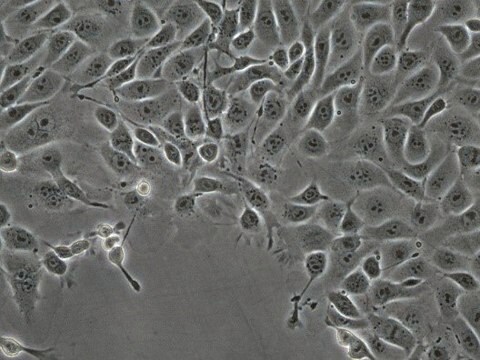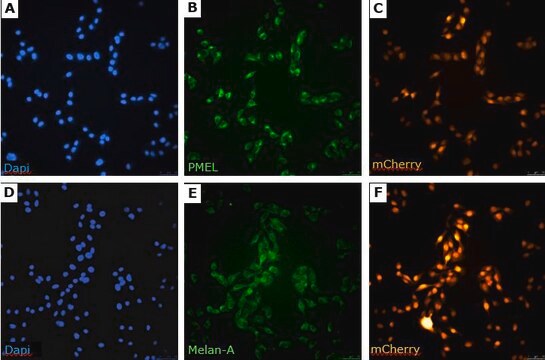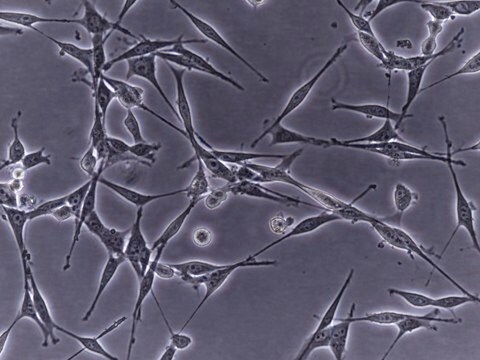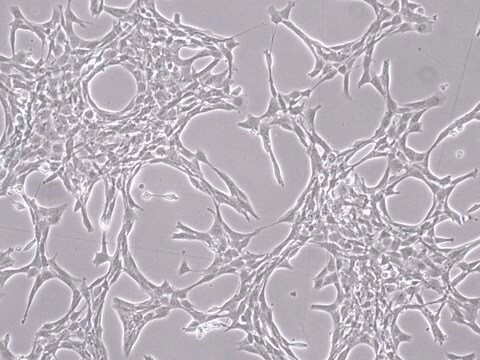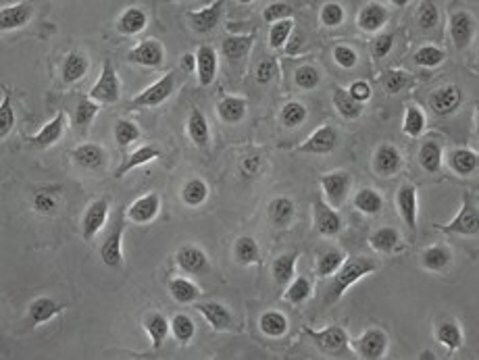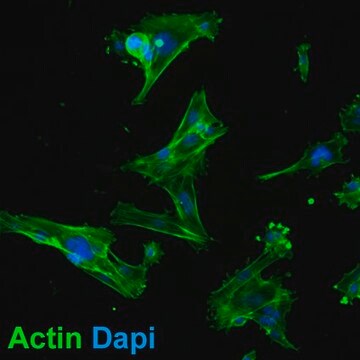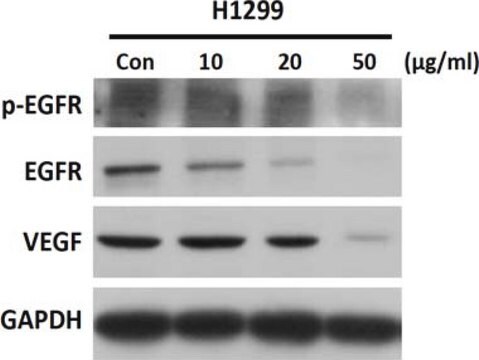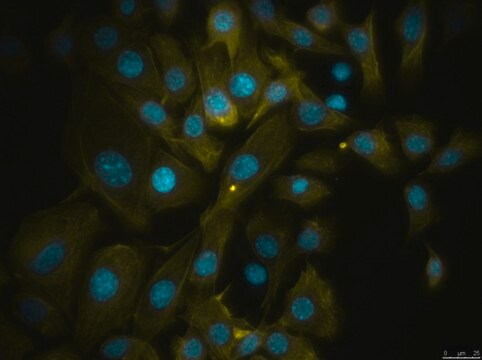SCC462
RMS RET Melanoma-sorted Mouse Cell Line
Synonym(s):
RET melanoma cell line, RET melanoma-sorted cell line, RMS cell line
Sign Into View Organizational & Contract Pricing
All Photos(4)
About This Item
UNSPSC Code:
41106514
Recommended Products
biological source
mouse
Quality Level
packaging
vial of ≥1X10⁶ vial
manufacturer/tradename
Millipore
technique(s)
cell based assay: suitable
cell culture | mammalian: suitable
shipped in
liquid nitrogen
storage temp.
−196°C
General description
The parental cells for SCC462 were isolated from a spontaneously occurring skin tumor in RET transgenic mice. The Ret oncogene was originally created by an accidental in vivo recombination of two human genes, Ret and RFP (TRIM27). SCC462, the mouse Ret-melanoma sorted (RMS) cell line, was created by engineering the isolated Ret-melanoma cells to express the puromycin resistance gene and the fluorescent reporter gene mCherry by retroviral transduction followed by fluorescence selection.
Application
- Each vial contains >1X106 viable cells.
- sBT-RMS cells are verified to be of mouse origin and negative for human, rat, Chinese hamster, Golden Syrian hamster, and non-human primate interspecies contamination, as assessed by a Contamination Clear panel by Charles River Animal Diagnostic Services
- Cells tested negative for infectious diseases against a Mouse Essential CLEAR panel by Charles River Animal Diagnostic Services.
- Cells tested negative for mycoplasma.
Features and Benefits
Unlike most existing preclinical model systems, SCC462 retains the capacity for spontaneous metastasis to the brain, the lungs, and other organs in immunocompetent mice following orthotopical inoculation by subdermal injection. SCC462 has been demononst
Target description
The RET oncogene was originally created by an accidental in vivo recombination of two human genes, RET and RFP (the RET-finger protein, known today as TRIM27), during a transformation of NIH3T3 cells with human lymphoma DNA (Takahashi 1985). The founder R
Storage and Stability
RMS cells should be stored in liquid nitrogen until use. The cells can be cultured for at least 10 passages after initial thawing without significantly affecting the cell marker expression and functionality.
Other Notes
This product is intended for sale and sold solely to academic institutions for internal academic research use per the terms of the “Academic Use Agreement” as detailed in the product documentation. For information regarding any other use, please contact l
Disclaimer
Unless otherwise stated in our catalog or other company documentation accompanying the product(s), our products are intended for research use only and are not to be used for any other purpose, which includes but is not limited to, unauthorized commercial uses, in vitro diagnostic uses, ex vivo or in vivo therapeutic uses or any type of consumption or application to humans or animals.
Storage Class Code
12 - Non Combustible Liquids
WGK
WGK 3
Flash Point(F)
Not applicable
Flash Point(C)
Not applicable
Certificates of Analysis (COA)
Search for Certificates of Analysis (COA) by entering the products Lot/Batch Number. Lot and Batch Numbers can be found on a product’s label following the words ‘Lot’ or ‘Batch’.
Already Own This Product?
Find documentation for the products that you have recently purchased in the Document Library.
Our team of scientists has experience in all areas of research including Life Science, Material Science, Chemical Synthesis, Chromatography, Analytical and many others.
Contact Technical Service